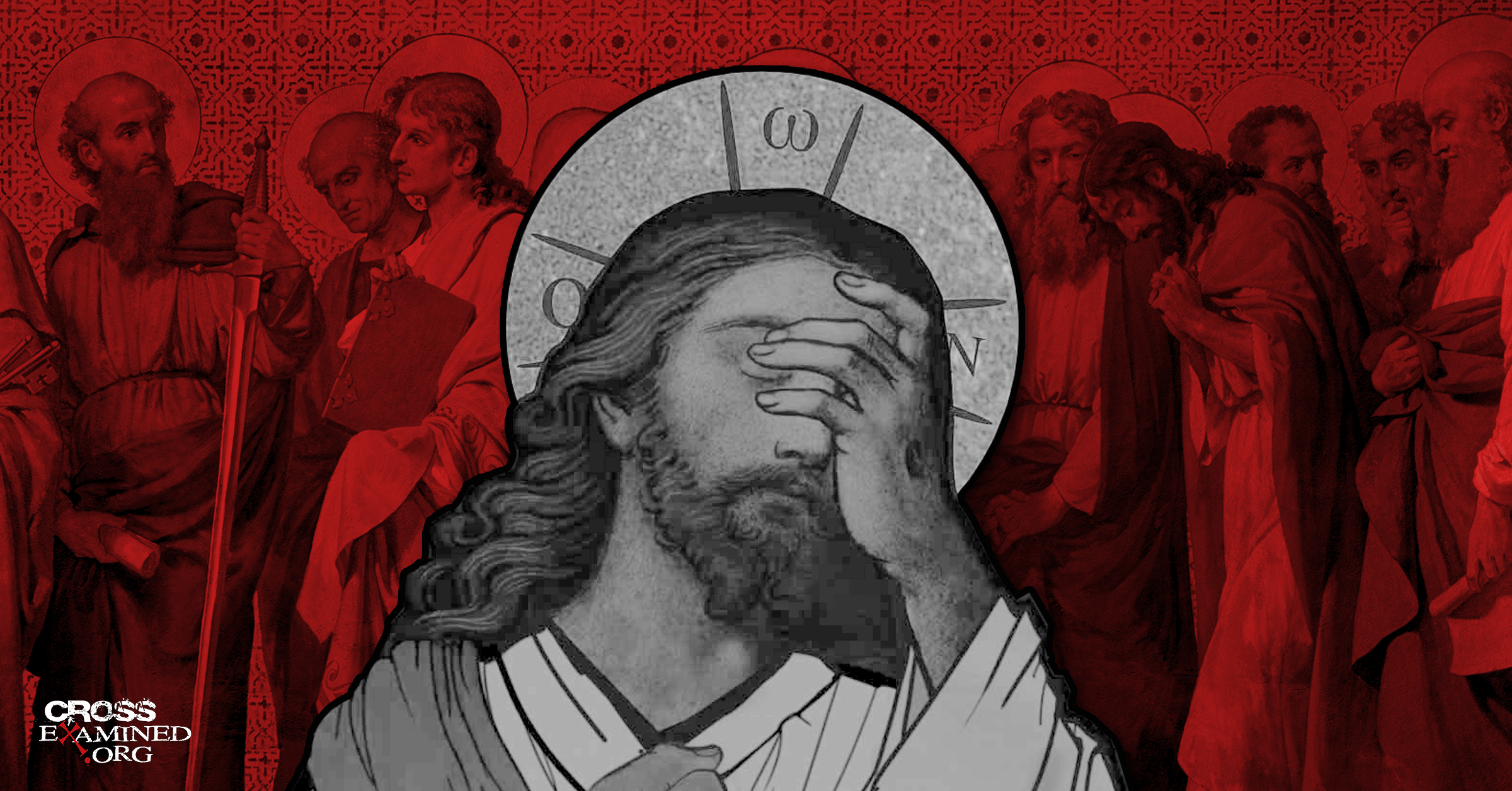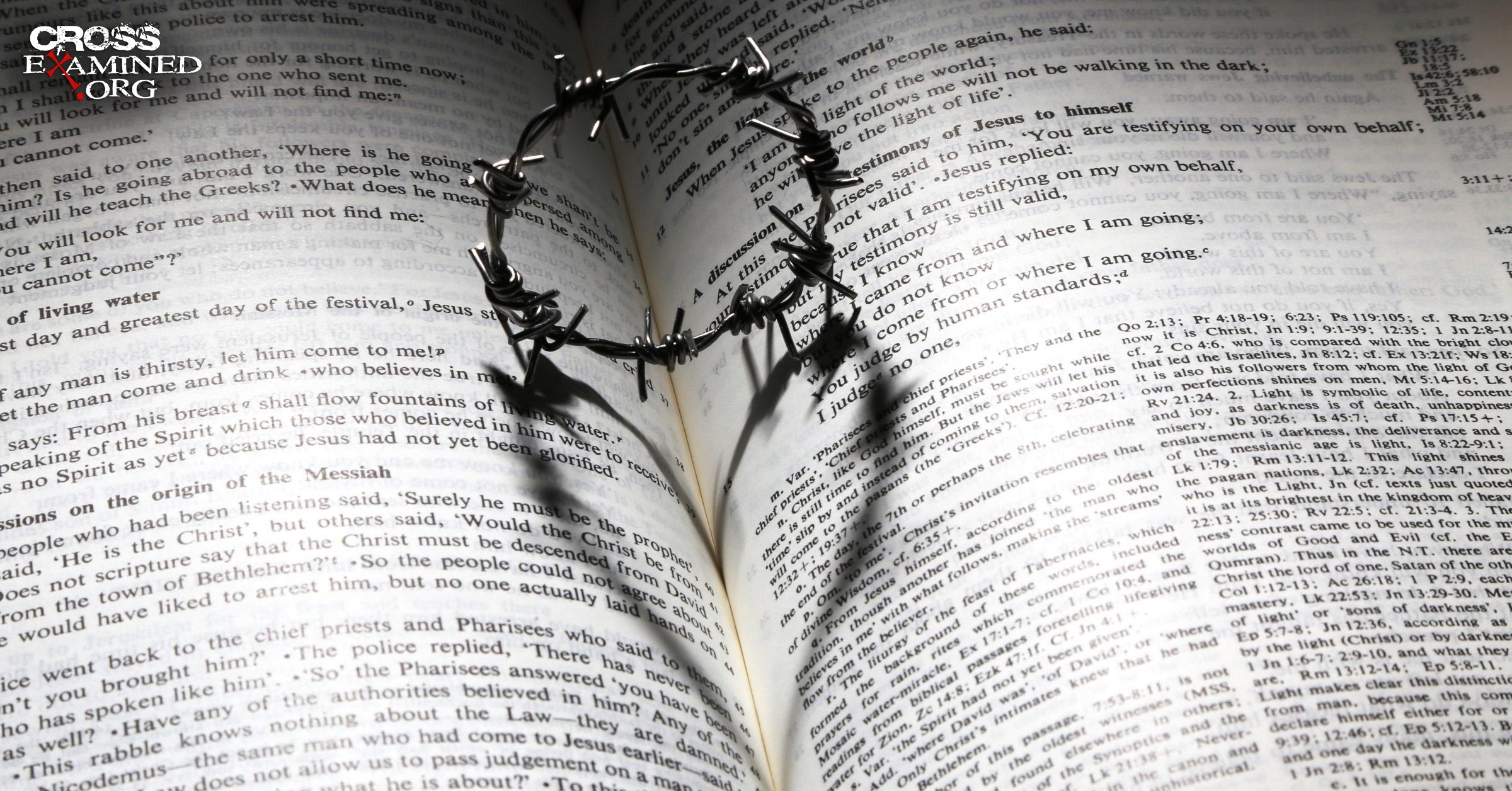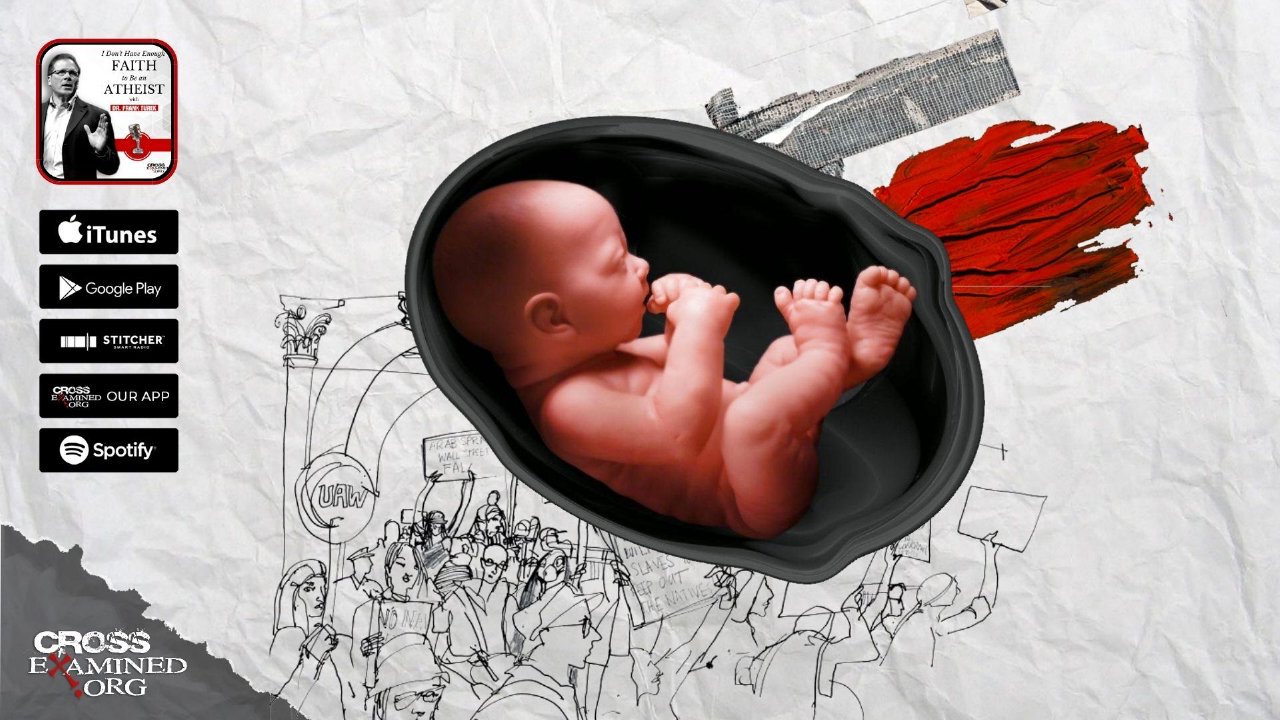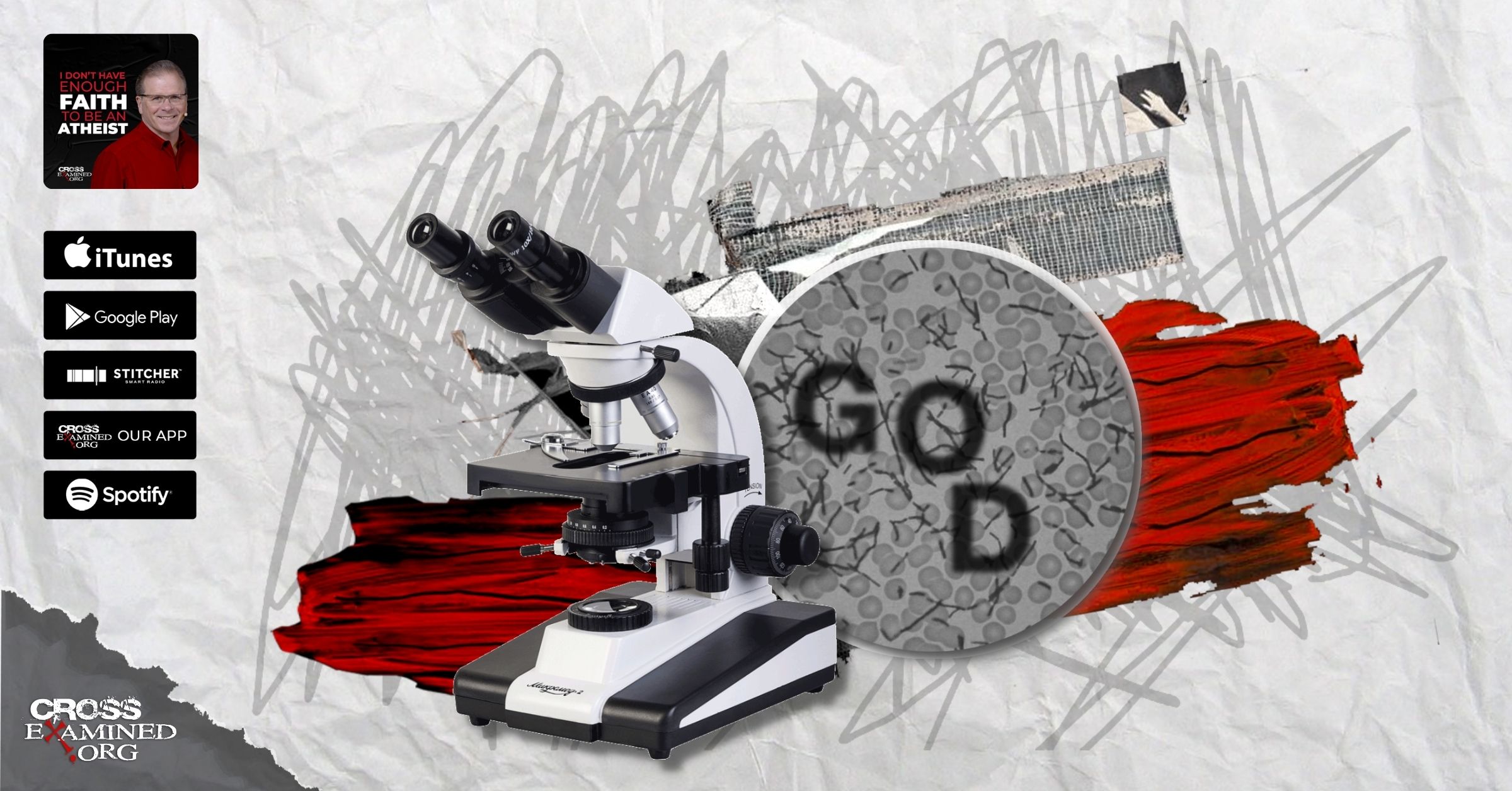The Gospels Are Embarrassing for The Apostles
If you want people to trust their leaders, you usually would try to paint them in the best light possible. You don’t go out of your way to undermine their authority. But that isn’t what we see at all in the Gospels. Those who would eventually lead the church often look impulsive, incompetent, boastful, and stupid. If the Gospels are supposed to be PR for the apostles, their propaganda team was a dismal failure.
This kind of information is what NT scholars call the criteria of embarrassment. In his book, Marginal Jew, Meier writes:
The point of the criterion is that the early church would hardly have gone out of its way to create material that only embarrassed its creator or weakened its position in arguments with opponents.
Marginal Jew
Those Faithless Disciples
Let’s look at the Gospel of Mark since most believe it is the earliest Gospel. Mark tells us that the disciples were often faithless. When encountered by a storm when crossing a lake, the disciples panicked. (Mk 4:35-41) They brazenly accused Jesus of not caring about them, and Jesus rebuked them for not having any faith. They were also terrified to see Jesus walking on the water only two chapters later. (Mk 6:50)
When a man brought his demonized son to his followers, the disciples were too incompetent to give the boy any help. Jesus chided them for their lack of faith. (Mk 9:17-19) Mark also tells us that Jesus’ own family thought that he was nuts. (Mk 3:21) Later we read in Acts, 1 Corinthians, and Galatians that James and Jesus’ other siblings became leaders in the church. (Acts 15, 1 Cor 9:5, Galatians 1-2) So far, the future heads of Jesus’ church look like a sorry bunch.
The Disciples Were Slow
Mark also tells us that the disciples were extremely slow on the uptake. They asked questions about Jesus’ parables that he expected them, of all people, to understand. His main points were often lost on them. (Mk 4:13, 7:18)
Jesus had previously fed a crowd of 5000 and later 4000 with a few loaves and fish. Shortly afterward, Jesus said that they should beware of the leaven of the Pharisees. What did the disciples do in response? They fussed with each other because they forgot to pack bread for their boat trip across the lake. Jesus had to remind them that food was neither his point nor an issue. That should’ve been obvious by then. (Mk 8:14-21)
The Disciples Were Rude
The disciples were notoriously bad-mannered. As I mentioned earlier, they accused Jesus of not caring about them when he was sleeping during the storm. Peter had the genius idea of rebuking Jesus when he said he was going to sacrifice himself. Jesus called Peter Satan in response, so yeah, that didn’t go over big. (Mk 8:31-33)
When people brought small children to be blessed by Jesus, like ogres, his disciples tried to run them off. (Mk 10:13-14) When the woman anointed Jesus’ feet with costly perfume, Mark tells us that “they rebuked her harshly.” Not a smooth move. Jesus emphatically told them to leave her alone. She had more value for Jesus than they all did put together. (Mk 14:4-9)
The disciples fought over who was the greatest, and John and James had the brass to ask Jesus if they could sit at his right and left hand when he came into his kingdom. (Mk 9:33-34, 10:35-37) They clearly didn’t understand the kind of servant-leadership that Jesus was modeling.
The Going Got Tough, The Disciples Ran
In Jesus’ darkest hour, they bragged about being willing to die before abandoning him. (Mk 14:31) While Jesus was praying they all fell asleep. (Mk 14:37-42) And when he was arrested, they all fled. (Mk 14:50) Peter ended up denying him three times when pressed by a servant girl (Mark 14:66-72), and they all were AWOL on the day of the resurrection. (Mk 16:1-9) Even though Jesus repeatedly told them he’d rise again three days later. (Mk 8:31-32, 9:30-32, 10:32-34, 14:28) Even atheist scholars like Gerd Ludemann use the criteria of embarrassment when arguing for the historicity of Peter’s denial. (The Resurrection of Christ, p 162)
Finally, who actually showed up at the tomb? The women (Mk 16:1). They were the first eyewitnesses to the empty tomb. This is itself an embarrassing detail, as a woman’s testimony in the 1st-century context carried very little weight.
- “But let not the testimony of women be admitted, on account of the levity and boldness of their sex” … (Josephus, Antiquities, 4.8.15).
- “Any evidence which a woman [gives] is not valid (to offer)” … (Talmud, Rosh Hashanah 1.8c).
Luke tells us that the disciples thought the women’s testimony was “nonsense.” They didn’t believe them. (Luke 24:11) 100 years later Celsus would mock the Christians for believing the tales of a hysterical woman. (Contra Celsum 2.54)
Again, if this is supposed to be Christian propaganda to make their leaders look good, or make the resurrection story more plausible, the Gospel writers caused problems for themselves. In the words of scholar NT Wright:
“As historians, we are obliged to comment that if these stories had been made up five years later, let alone thirty, forty, or fifty years later, they would never have had Mary Magdalene in this role. To put Mary there is, from the point of view of Christian apologists wanting to explain to a skeptical audience that Jesus really did rise from the dead, like shooting themselves in the foot. But to us as historians, this kind of thing is gold dust. The early Christians would never, never have made this up.”
The Resurrection of the Son of God
Embarrassing Details In Acts
And it’s not like things are hunky-dory in the Book of Acts, either. You know, that book about the apostles taking over after Jesus. You would think Luke would make them look like they finally got their act together. Instead, we see that Paul and Barnabas got in a big tiff over bringing Mark (the future Gospel writer!) because Mark got homesick and left them in the middle of ministry earlier. (Acts 15:36-40) Mark is later mentioned in Paul’s letters, so apparently, things got patched up later. (Philemon 24)
There was also racist bickering going on in the infant church in Jerusalem because the Hellenized Jewish widows were being neglected in the daily distribution of food. (Acts 6:1)
And even though Jesus told them to take the Gospel to the entire world it took a special vision for Peter to finally understand that it was OK to preach to those unclean Gentiles seemingly years later. (Acts 10)
What Real Christian Propaganda Looks Like
Luke and Mark hardly make the apostles out to be saints. Now compare this to other Christian propaganda. Eusebius wrote a biography of Emperor Constantine that was very charitable, to say the least. He slyly omits that Constantine had his own son Crispus and his other wife Fausta killed. Eusebius instead makes Constantine out to be a super saint. Now that is what real propaganda looks like.
It is hard to imagine the early Christians inventing embarrassments for themselves when they already had enough problems from persecution! And yet, it is difficult to read the Gospel of Mark without getting a negative impression of the apostles. Again, this is the earliest of the Gospels according to most scholars. Eyewitnesses would still be around, including some of the apostles. These negative statements are strong indications that these things were really said. NT scholar C.E.B. Cranfield concludes:
“The fact that the perplexing and offensive material…was preserved at all and reached Mark says much for the general reliability of the sources used by him.”
These self-damaging materials are one more reason why we can trust the Gospels. This kind of evidence doesn’t by itself prove that the Gospels are reliable, but it does lend some support to that view. It’s one part of a much larger cumulative case.
Recommended resources related to the topic:
The New Testament: Too Embarrassing to Be False by Frank Turek (DVD, Mp3, and Mp4)
Why We Know the New Testament Writers Told the Truth by Frank Turek (DVD, Mp3 and Mp4)
__________________________________________________________________________________________________________________________________________________
Erik Manning is a Reasonable Faith Chapter Director located in Cedar Rapids, Iowa. He’s a former freelance baseball writer and the co-owner of the vintage and handmade decor business with his wife, Dawn. He is passionate about the intersection of apologetics and evangelism.
Original Blog Source: https://cutt.ly/MQacEd6










